
- 美国网友:西方对中国文明的最大礼物是什么?
- 发布时间:2023/1/11 阅读次数:3006 字体大小: 【小】 【中】【大】
西方近代物质文明和生活方式对中国产生了双重的影响:一方面,西方的一切是伴随着大炮和殖民主义野蛮侵略强行进入中国人的生活的,它破坏了中国长期安定、宁静的社会环境。另一方面,西方传入中国的新器具、新事物和新的生活方式又有一定的先进性,有力地推动了中国近代社会结构的转型,引发了中国社会迈向近代化的新变革。在美版知乎Quora上,美国网友提问道:西方对中国文明的最大礼物是什么?礼物这个词很讽刺,也很傲慢,我们看看网友们的回答。

问题

中国网友贝文•褚的回答
China (the Qing Dynasty) is different from many countries (regions) that
were also invaded by Western colonialism at that time. China itself is
an extremely mature political body, with stable cultural continuity and
identity, with extremely large territory and population, and has the
economic strength at the forefront of the world.
中国近代(清王朝)不同于当时很多同样被西方殖民侵略的国家(地区)的一点是,中国本身是一个极其成熟的政治体,有着稳定的文化延续和认同,有着极为庞大的疆域与人口,有占世界前列的经济实力。
Taken apart, the Ming and Qing dynasties were the peak of the
development of feudal autocracy. It has to be admitted that the
autocratic monarchy, especially China's autocratic monarchy with
extremely powerful centralized power, is indeed the most efficient
social organization of agricultural society.
拆开来说,明清是封建专制制度发展的顶峰时期。不得不承认的是,君主专制制度,尤其是中国这种拥有极为强有力的中央集权能力的君主专制政体,确实是农业社会最高效的社会组织方式。
In the agricultural society, its advantages obviously outweigh its
disadvantages, making China maintain a vast territory and a huge
population for a long time, and at the same time, it has also produced
brilliant culture and technology. As a result, it has become one of the
major civilizations in the world, and also a regional setter and arbiter
of international relations. The four words "heaven and kingdom" reflect
the great advantages of politics, economy, culture and even military
power over surrounding regions and countries.
在农业社会,它的优点明显盖过了缺点,使得中国在长时间里保持了辽阔的疆域和巨大的人口,同时还诞生出灿烂的文化和科技。由此成为世界主要文明之一,同时还是地区性的国际关系制定者与裁决者。“天朝上国”这四个字,体现出的是政治,经济,文化甚至军事上对周边地区和国家的巨大优势。
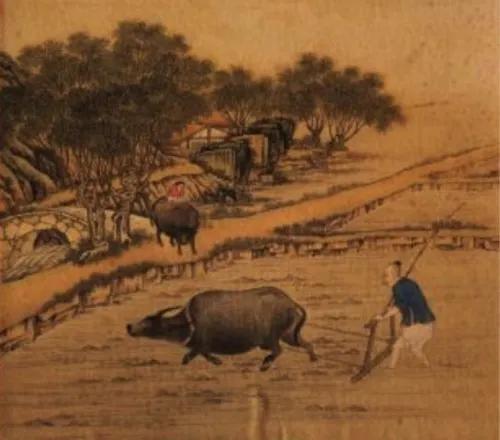
After the emergence of Western colonial aggression, all aspects of China
were broken down, and then our martyrs took a full 100 years to restore
the unity and stability of the imperial era. In this light, the cost
and sacrifice of the Chinese nation are unprecedented. In the 100 years
since 1840, our country has faced the reality and crisis of being
divided, annexed, colonized and exterminated several times. The
resulting social unrest, the loss of wealth, the reduction of territory,
the massive reduction of population, and all the losses are even more
incalculable.
而当西方殖民侵略出现后,中国的方方面面都被蛮横打破,而后我们的先烈用了整整一百年时间,才恢复到帝制时代的统一、稳定局面。光这一点,中华民族付出的代价和牺牲都是前所未有的巨大。
1840后的这一百年间,我们国家数次面临被分割,被侵吞,被殖民,被亡国灭种的现实和危机。
由此产生出的整个社会的动荡,财富的流失,疆域的缩小,人口的大量减少,所有的损失加起来更 是难以估量。
The New China in 1949 was not richer than it was in 1840. The 100 years
and a lot of wealth were stolen and stolen by Westerners and Japanese!
At the time of Western colonial aggression, we were different from many
regions and countries. For example, South Asia, India, Middle East
Arabia, the Ottoman Empire, the South American Maya and the Inca, and so
on. These countries and regions are full of ethnic contradictions,
cultural fragmentation, strange languages, religious conflicts, and some
have not even produced mature civilizations.
1949年的新中国,其实并不比1840年的时候富裕,这一百年的时光以及大量财富就那么被西方人,日本人抢走了,偷走了!
西方殖民侵略之时,我们同很多地区和国家都不一样。比如南亚印度、中东阿拉伯、奥斯曼帝国
、南美玛雅与印加等等。这些国家和地区,本身就民族矛盾重重、文化分崩离析、语言千奇百怪、宗教冲突不断、有一些甚至都还没有产生成熟的文明。
Therefore, India has become a unified country with the help of
colonialists, and is still complacent until now; A large number of
nationalities in the Ottoman Empire applauded the colonists for
accelerating the disintegration of the country; The Middle East region
lingers between resistance and compromise, and is ambiguous; Native
Americans in South America and North America had no chance to speak, so
they were wiped out by the colonists.
所以,印度借殖民者之手成为统一国家,直到如今还沾沾自喜;奥斯曼帝国内部的大量民族对于殖民者加速国家分崩离析,更是拍手称快;中东地区在反抗和妥协之间徘徊,暧昧不明;南美北美土著更是连发声的机会都没有,就被殖民者抹去了历史。
Only China is different. We have a very long and unbroken cultural
heritage. Cultural heritage and cultural identity complement each other,
which together constitute the cultural character of this land, and is
the only cultural exporter in the region, forming a strong national
self-confidence.
唯独中国不同。 我们有着非常悠久而且未曾断绝的文化传承。文化传承和文化认同相辅相成,共同组成了这片土地的文化性格,而且是区域内唯一的文化输出国,形成了强大的民族自信。
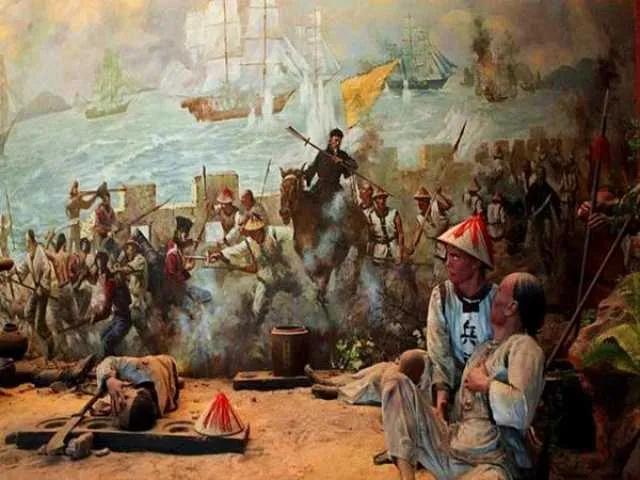
With this as the support, we are constantly fighting the invaders
ideologically, culturally and militarily. Because the glory of the past
does not allow us to bow! The dangers of the colonial aggression of the
West are too numerous to record. For example, cultural aggression, the
colonial invaders rely on their discourse power. It has greatly confused
the thinking of the Chinese people, hit the confidence of the Chinese
people, and trampled on the wisdom crystallization of language, writing,
literature, faith, religion and so on in this land. It has poisoned the
thinking of generations after generations, and even now it has not been
able to eliminate these cultural malignant tumors.
以此为支撑,不断在与侵略者作思想上,文化上,军事上的斗争。因为过去的荣光不允许我们低头! 西方的殖民侵略的危害之多,简直罄竹难书
。比如,文化侵略,殖民侵略者凭借掌握的话语权。
极大地混乱了中国人的思维,打击了国人的自信心,践踏了这片土地上的语言、文字、文学、信仰、宗教等等智慧结晶。戕害了一代又一代人的思维,甚至直到如今都未能清除掉这些文化毒瘤。
Another example is the shrinking of China's modern territory and border
disputes. Let's see how much trouble they have caused today's China.
These are the legacy of the scourge of Western colonialism. In the Qing
Dynasty of 1840, GDP still accounted for one third of the world; In
1949, the share of GDP in the world was negligible. Such a huge gap
cannot be simply summed up by the rise of capitalism and the fall of
feudal autocracy. There is also unfair and cruel plunder and oppression
under the laws of colonialism.
再比如,中国近代疆域的缩小,边界争端,看看它们给今天的中国造成了多么大的麻烦。这都是西方殖民主义的祸害遗留。
1840的清朝,GDP还占世界三分之一;1949的新中国,GDP占世界份额可以忽略不计。如此巨大的差距,绝不能单纯用资本主义兴起,封建专制落后来概括总结。这里面还有殖民主义法则下不公平的残忍的掠夺和压榨。
The western colonial aggression caused more pain to modern China than
its appendage, that is, the benefits brought by modernization to the
Chinese people. That is why we hate and condemn the history of Western
colonialism and consider our modern history as a history of humiliation.
西方殖民侵略给近代中国造成的苦痛远远大于它的附属品也就是近代化给中国人带来的好处。所以,我们才会如此痛恨和谴责西方殖民史,以及认为自己的近代史是屈辱史。
China has always been a rich and handsome country. Suddenly, it was
beaten, robbed, stolen, and turned into a poor man. Of course, it felt
humiliated more. The sentence "lagging behind will be beaten" is
certainly correct, but it is not the truth, because it is an argument
derived from abandoning the jungle law of human nature. "Why should we
fall behind and be beaten"?! This is the thinking of human nature.
中国一直是高富帅,突然就被人揍了、抢了、偷了,还变成穷光蛋,当然觉得屈辱更多。 “落后就要挨打”这句话当然有正确性,但它不是真理,因为这句话是抛弃了人性的丛林法则演绎出来的论调。 “凭什么落后就该挨打”?!这才是对人性的思考。
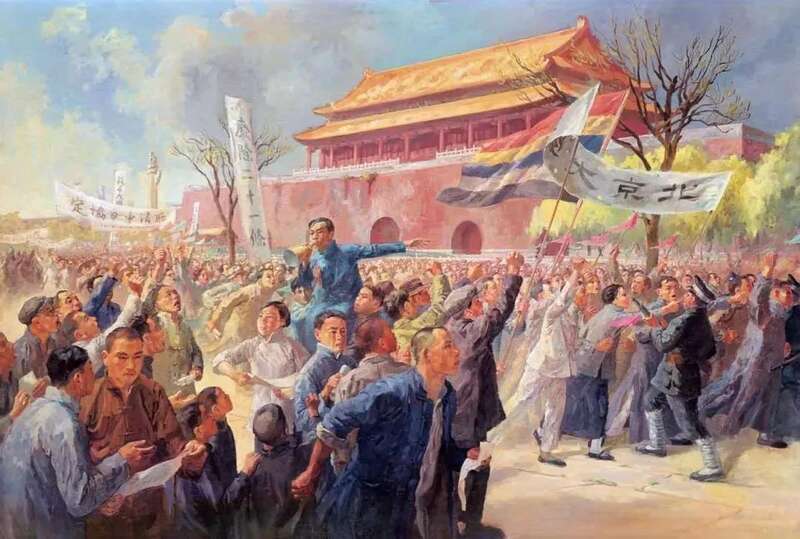
Modern history is a history of humiliation, a history of blood and
tears, and a history of struggle of the Chinese people. It allows us to
see clearly the "five facial imperfections" under the mask of
civilization in the western world, and also lets us re-examine our own
advantages and disadvantages.
近代史是一部屈辱史,是一部血泪史,也是一部中华儿女的奋斗史。它让我们看清了西方世界文明面具下的“五官不全”,也让我们重新审视了自身的优缺点。
Looking back on the history of modern China, China really tasted the
benefits of modernization. It was precisely after the founding of the
People's Republic of China in 1949 and the Chinese people took the lead.
It is not the time when the western colonists used strong boats and
sharp guns to make great strides in China.
回顾近现代中国历史,中国真正尝到近代化,现代化甜头的阶段,恰恰是1949新中国成立,中国人自己当家做主之后。绝不是西方殖民者用坚船利炮在中华大地耀武扬威的时期。

中国网友郄海伦的回答
The so-called greatest gift given by the West to Chinese civilization is
not a gift, because it is not a gift, but a naked invasion.
西方给予中国文明的所谓最大礼物并不是礼物,因为它不是作为礼物,而是赤裸裸的侵略。
But... ironically, this is a gift, not only from the "West", but also from "nature" or "destiny".
但……讽刺的是,这是一份礼物,不只是来自“西方”,更多是来自“自然”或“命运”。
Chinese civilization has successfully lasted for such a long time, and
the Chinese people have become complacent. They let the industrial
revolution pass by them, and they thought they were "all in heaven".
中国文明成功延续了这么长时间,中国人变得自满了。他们让工业革命从他们身边经过,他们认为自己是“天朝上国,无所不有”。
The Opium War, the War of Japanese Aggression against China, the Allied
Forces of Eight and other unequal treaties have completely humiliated
the modern Chinese government and the Chinese people.
鸦片战争、日本侵华战争、八国联军和其他不平等条约彻底羞辱了中国近代政府和中国人民。
However, it is ironic that these traumatic experiences have lifted China
out of its doldrums and brought it back to life. As of 2017, China has
the seven fastest supercomputers in the world, and some aspects of its
aerospace technology are even more advanced than the United States.
然而,具有讽刺意味的是,这些创伤性的经历使中国摆脱了萎靡不振的状态,并重新振作起来。截至2017年,中国拥有世界上速度最快的七台超级计算机,其航空航天技术的某些方面甚至比美国更先进。
Napoleon Bonaparte warned: "China is a sleeping giant. Let her sleep, because when she wakes up, she will shake the world."
拿破仑·波拿巴警告说:“中国是一个沉睡的巨人。让她睡觉吧,因为当她醒来时,她会撼动世界。”
Thank you for your wake-up call.
谢谢你们的叫醒服务。

美国网友阿巴迪的回答
External impetus
外部刺激
China has been standing at the top of the world for a long time and is
usually lonely. Surrounded by mountains, deserts and oceans, China has
always been a relatively isolated system. It is not that there is no
interaction with the outside world; In fact, there are many contacts
among Mongols, Romans, Parthians, Japanese, Koreans, etc. However, in
addition to Buddhism, nomadic invasion or trade, the external influence
is relatively small.
中国长期以来一直站在世界之巅,而且通常是孤独的。中国被高山、沙漠和海洋包围,一直是一个相对孤立的系统。并不是说与外界没有互动;事实上,蒙古人、罗马人、帕提亚人、日本人、韩国人等之间有很多接触。但除了佛教、游牧民族入侵或贸易之外,外界的影响相对较小。
The problem brought by this is stagnation. China has become a cyclical
and stable country, easy to unify and difficult to split. From
governance to roads and dams, the system used by the State of Qin to
maintain national unity is still in use. Confucius' thought is deeply
rooted in Chinese society, and people generally have the virtue of
respect and hard work.
这方面带来的问题是停滞。中国成为一个周期性、稳定的国家,容易统一,难以分裂。从治理到道路和水坝,秦国用来维系国家团结的制度至今仍在使用。孔子的思想深深植根于中国社会,人们普遍具有尊重和努力工作的品德。
The turbulence caused by Western colonialism has given China
unprecedented stimulus. Previously, this stimulus came from serious
external threats, such as Mongolia or Xiongnu, or internal chaos, such
as the Three Kingdoms. Does China have innovation in a stable period? Of
course, from gunpowder to paper, to writing to steel, China's invention
has a great influence. But these inventions are often buried or used
passively.
西方殖民造成的动荡给了中国前所未有的刺激。此前,这种刺激来自严重的外部威胁,如蒙古或匈奴,或内部混乱,如三国。中国在稳定时期有创新吗?当然,从火药到纸张,再到书写到钢铁,中国的发明影响力不小。但这些发明往往被埋没或被动使用。
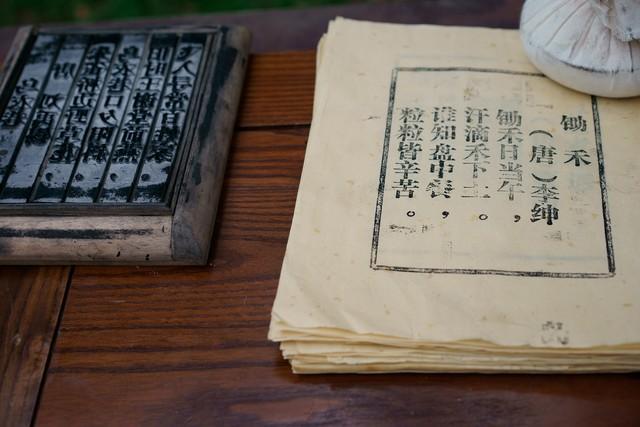
By the Song Dynasty, China had already had the economic foundation for
industrialization. But it failed because there was no motivation. There
is no incentive to improve the stable social life that can operate for a
long time. When the disaster came, the peasants revolted and set up a
new emperor; But destiny did not give up its rule over China.
到了宋朝,中国已经具备了工业化的经济基础。但它失败了,因为没有动力。没有改善能够长期运行的稳定社会生活的动力。当灾难来临时,农民们起义了,并拥立了一位新皇帝,如此循环;但天命并没有放弃对中国的统治。
When the Qing Dynasty did not innovate during the Meiji Restoration as
the Japanese did, the feudal rule collapsed. As a result, a long series
of disasters and wars began, eventually leading China out of the late
Middle Ages and into modern times.
当清朝没有像日本人那样在明治维新期间进行革新之后,封建统治就灭亡了。于是,一长串的灾难和战争开始了,最终导致中国走出中世纪晚期,走向现代。
The West provides threats, incentives, tools and opportunities. For
hundreds of years, their threats, arrogance and goodwill have affected
China today. But between threats and opportunities, China has found
itself pushed into today's state. The influence of the West is very
strong. The threat of opium, the threat of foreign powers, the threat of
the Japanese army invading China, and the threat of survival between
the two major powers in the world during the cold war all stimulated
this country.
西方提供了威胁刺激、工具和机会。百年来,他们的威胁、傲慢,影响了今天的中国。但在威胁和机遇之间,中国发现自己被推向了今天的状态。西方的影响力很强。对于鸦片战争的威胁、列强的威胁,侵华日军的威胁,冷战期间夹在世界的两个大国之间的求生存的威胁,都刺激了这个国家。
In recent decades, in the face of the development gap, the concept of
modern country and modern economy, concrete roads, electric power,
advanced sewage treatment system, modern medical care and other
technologies have been gradually introduced, and the Chinese government
and people are doing better and better every year, supporting its huge
economy and bringing prosperity.
近几十年来,面对发展差距,现代国家和现代经济的概念,混凝土道路、电力、先进的污水处理系统、现代医疗保健等技术,所有这些逐渐引入,中国政府和人民每年都做得越来越好,支撑了其庞大的经济并带来了繁荣。

After thousands of years of stable stagnation, the existence of the West
has promoted China's innovation and progress. China's huge world
economy, which creates wealth through endless exports, and the complex
but delicate balance of the world situation of the United States as a
faltering superpower, have pushed China to an unprecedented height.
在经历了千年的稳定停滞之后,西方的存在推动了中国的创新和进步。中国通过无止境的出口创造财富的巨大世界经济,以及美国作为一个摇摇欲坠的超级大国的复杂但微妙平衡的世界局势,这些都将中国推向了前所未有的高度。
China is not perfect, far from it, and the response to the West has also
enabled both sides to achieve a win-win situation. But in the end, the
conflict between Eastern and Western cultures has led to the formation
of some amazing things; Improve the lives of 1.3 billion people at the
rate of several centuries in decades.
中国并不完美,远非如此,而对西方的回应也让双方实现了双赢。但最终,东西方文化的冲突让一些惊人的东西得以形成;以几十年超过西方几个世纪积累的速度改善13亿人的生活。

海外网友约翰•罗杰斯的回答
The greatest gift from the West to China is also the gift from the West
to the rest of the world. The scientific, industrial and technological
revolution and innovation in the West have pushed the world to adopt
them as never before, and thus develop and grow. Yes, Chinese, Islamic
and Indian civilizations have contributed to the evolution of the way of
thinking that paved the way for the scientific revolution, but
scientific and technological innovation took place in the West, so its
tremendous impact has changed the history and direction of the West,
paved the way for its leading position, and become a "model" for other
regions of the world, including China.
西方对中国的最大礼物也是西方对世界其他地区的礼物。西方的科学、工业和技术革命和创新推动了全世界前所未有地采用它们,并由此发展壮大。是的,中国、伊斯兰和印度文明为科学革命铺平道路的思维方式的演变做出了贡献,但科技革新发生在西方,因此其巨大影响改变了西方的历史和方向,为其主导地位铺平了道路,成为包括中国在内的世界其他地区的“榜样”。
Today, the Chinese, Indians and some Muslims all want to prove their
contribution to modern society, but the Prometheus gift left by the West
to the rest of the world, the scientific thinking set, is produced by
accident, which cannot be denied in any case.
今天,中国人、印度人和一些穆斯林都想证明自己对现代社会的贡献,但西方留给世界其他地方的普罗米修斯礼物——科学思维定势,是以偶然的方式产生的,无论如何都不能否认。
University system, peer-reviewed scientific papers, patent rights,
technology transfer and manufacturing transfer are also ways for the
West to benefit the world.
大学体系、同行评审的科学论文、专利权、技术转让、制造业转让也是西方影响世界的方式。
With the opening of the new air route, America was discovered, and the
crops brought from the new continent brought a population explosion, and
also brought the gospel to the local cuisine. Tomatoes, peppers, corn,
peanuts and potatoes have made indelible contributions to Chinese
cuisine. The greater contribution of the globalized world will
ultimately benefit China.
新航路的开辟,美洲被发现也很重要,从新大陆带来的农作物带来了人口激增,也给各地的美食带来了福音。番茄、辣椒、玉米、花生和土豆对中国美食做出了不可磨灭的贡献。全球化世界的更大贡献最终也使中国受益。

Therefore, after the contact with Europe, the most important impact on
China may be the crops of the new world, which made China's population
surge from 100 million to 400 million between 1700 and 1800. It led to a
lot of chaos, but also laid the foundation for China's modernization
after 1900.
因此,在与欧洲接触之后,对中国最重要的影响可能是新世界的农作物,这使得中国人口在1700年至1800年间从1亿激增至4亿。它导致了大量的混乱,但也奠定了1900年后中国现代化的基础。

澳大利亚网友乔治•胡的回答
Science and democracy.
科学与民主。
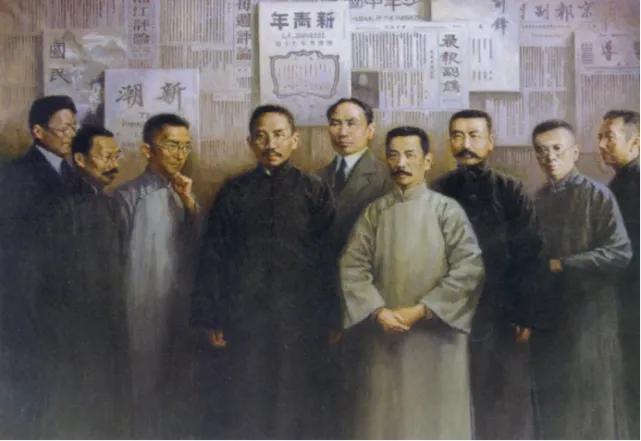
The May 4th Movement is the greatest revolution in China's modern history.
五四运动是中国近代史上最伟大的革命。
Chinese nationalists call for abandoning traditional values and
selectively adopting the Western "Mr. Science" (Chinese: Mr. Sai;
Pinyin: s á i xi sheng) and "Mr. Democracy" (Chinese: Mr. De; Pinyin: d é
xi sheng) to strengthen the new country. These traditional and
anti-traditional views and programs have always affected China's
politics and culture.
中国民族主义者呼吁摒弃传统价值观,选择性地采纳西方的“科学先生”(中文:賽先生; 拼音:sái xi生)和“民主先生”(中文:德先生; 拼音:déxi生)以加强新国家。这些打破传统和反传统的观点和方案一直影响着中国的政治和文化。
Nationalism, scientific thought, Darwinism, and enterprising spirit.
民族主义、科学思想、达尔文主义和进取精神等内涵丰富的名词。
Evolution is the greatest influence of the West on China.
进化是西方对中国最大的影响。
China's previous world outlook was static.
中国以前的世界观是静态的。
Now, no Chinese believe that the world is stable.
现在,没有中国人认为世界是稳定的。
The sense of competition is deeply rooted.
竞争意识根深蒂固。
If you come to China, you will find that the Chinese people have made great efforts for their dreams.
如果你来到中国,你会发现中国人民为他们的梦想付出了巨大的努力和努力。
Parents never let their children lose at the starting line.
父母从不让孩子输在起跑线上。
The child must be the first, or you will be laughed at.
孩子必须是第一个,否则你会被嘲笑的。
In China, you can feel competition every day.
在中国,你每天都能感受到竞争。
This is the biggest gift from the West to China.
这是西方带给中国的最大礼物。

最新评论















 最新评论
最新评论